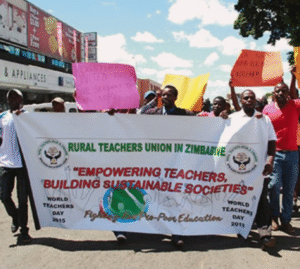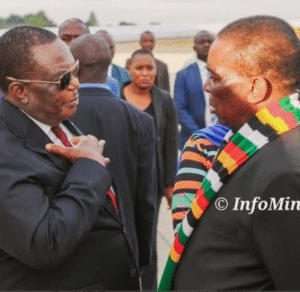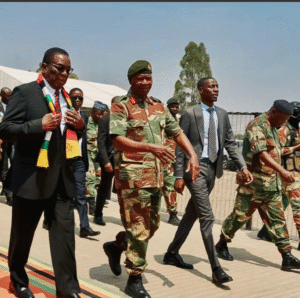MISALIGNED PRIORITIES: ZIMBABWE’S POLICE FORCE – FROM GUARDIANS TO PAWNS IN THE GAME OF POWER
In the gridlocked landscape of Zimbabwe, one demographic stands out, not merely for its ignorance, but more distressingly for its delusions and misconstrued grasp of the nation’s political and economic reality. This demographic is the partisan and highly politicised police force. It has unfortunately strayed far from professionalism and competence, a truth which starkly highlights the pressing need for its transformation into a true police service.
At the heart of the issue lies the paradox that this police force serves as the primary shield for the unsustainable preservation of an illegitimate status quo. Consequently, one could incorrectly infer that their welfare is entirely separate from the wellbeing of the citizens they’re tasked to oversee, potentially intimidating them out of expressing their foundational constitutional rights.
Under normal circumstances, the welfare of the often excessively eager, partisan, politicised, and professionally lacking police force should coincide with that of the citizens, who often suffer at their hands. Yet, it seems they are somehow shielded from the consequences that would ordinarily deter such behaviour in a well-functioning society.
The pestilent, parasitic, and criminally illegitimate ruling party, the ZANU PF, routinely undermines, disrespects, and degrades the country’s supreme law. It’s a means to the end of indefinitely maintaining its hold on power, against the wishes of the governed. This degradation of the constitution implies a failure to safeguard its citizens, rendering them subject to fear. In this scenario, the police, an instrument of the ruling party, are consequently immune to any fallout, such as arrests and prosecutions.
Alarmingly, the same police force, far from exhibiting the professionalism, competence, and respect for the rule of law expected of them, subsist in conditions of absolute poverty and deprivation. Their wages rank among the lowest in the governmental sector, a reality that their actions do not reflect. If one were to analogise the relationship between the police and the ZANU PF party to that of a couple, observers might suggest that the police are ensnared by an enamouring spell.
This is borne out by the fact that the parochial, bigoted, unprofessional police force is denied the service delivery promised to all Zimbabweans by the country’s supreme law. This same law is routinely weakened by the ruling party to consolidate its power and facilitate its exploitative behaviour. The very party that relies upon this unprofessional police force is inattentive and indifferent to the welfare of its instrument, even as the latter continues to enforce the former’s rule, while living in conditions of deprivation.
The irony of the situation is tragically poignant: the police force, entrusted with safeguarding the rights of citizens, has itself become a tool for maintaining an illegitimate power structure, and in the process, their rights and welfare are significantly compromised. This unfortunate scenario demands a profound reconsideration of the role, responsibility, and administration of the police force in Zimbabwe, with a keen focus on aligning the welfare of the police with the welfare of the people they are tasked to serve.




